Scott H. Young's Blog, page 14
June 6, 2023
Why Flashcards Beat Mnemonics for Studying
Suppose you have to memorize a lot of material—vocabulary words in a new language, terminology for an anatomy class, legal precedents, or dates of historical events. Which strategy will lead to better performance: mnemonics or flashcards?
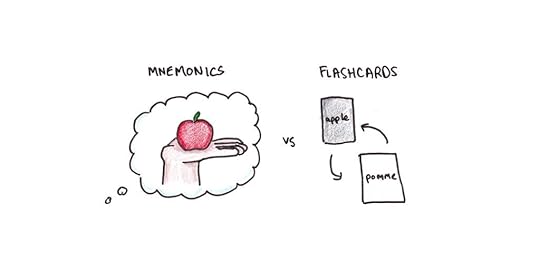
In the small and strange world of studying strategies, mnemonics techniques receive a lot of attention:
The keyword method allows you to memorize a word by linking it through an intermediate and fantastical picture. The French word chavirer, which means to capsize, gets transliterated into “shave an ear,” and you picture a bearded ear shaving itself in a canoe that’s tipping over.The peg method first links images to numbers (one is “bun,” two is “shoe,” etc..) and then combines these into elaborate visual imagery to encode and recall arbitrary numbers and dates.The memory palace uses a mental stroll through a familiar location. You insert fantastical imagery along a pre-remembered linear sequence, allowing you to graft arbitrary information onto this prior structure.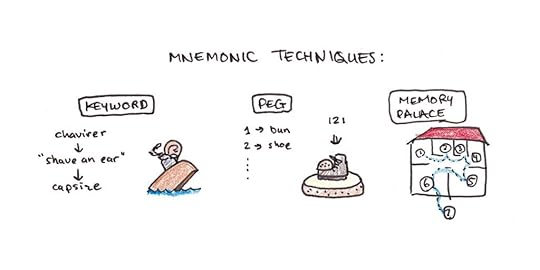
In Moonwalking with Einstein, the writer Joshua Foer explored his dive into elite memory competitions, where people memorize the order of a deck of cards in under a minute, learn the values of pi to thousands of decimal places, or develop perfect recall of unfamiliar texts, verbatim, in only slightly more time than it takes to read them.
Given these impressive results, starting with mnemonics for any skill that depends heavily on memory would seem a no-brainer.
In contrast, flashcards are, well, kinda boring. Everyone has done them before. They’re dry and elementary. You put a question on one side, the answer on the other and you drill (and drill and drill) until you can do them without thinking. No fantastical imagery or secret method. Just repetition.
Flashcards are UnderratedWhile mnemonics might seem like the obvious choice for learning a ton of new information, research rigorously comparing the efficacy of various studying strategies paints a somewhat different picture.
In their excellent review of ten popular studying techniques, Dunlosky and colleagues summarized the research on both the keyword mnemonic method and practice testing (which includes flashcards). In this review, practice testing got the highest possible rating for usefulness, while the keyword mnemonic got a low grade.
The keyword method does work—that is, students who use it tend to remember the words they were memorizing better than those who didn’t. But it had a number of limitations:
It takes time to learn and teach mnemonic methods. Unlike flashcards, mnemonics is itself a skill that requires considerable practice to get good at. While this may benefit elite mnemonists, it may not be worth the additional investment for those who simply want to learn Spanish, law or anatomy.Mnemonics often take a good deal of time, especially for beginners. It may take a few minutes to create a good link with the keyword method, in which time you could have done several repetitions with flashcards. One study, which equalized the time-on-task between mnemonics and more rote memorization, found that simply increasing repetition provided an advantage over using the mnemonic.Mnemonics greatly assist with recall over relatively short intervals, but their benefits might not endure. This makes mnemonics useful in memory competitions—events that require memorization of highly arbitrary information with near-immediate recall. In contrast, much of what we’re trying to memorize needs to stay in our heads for much longer.Flashcards, in contrast, are simple and quick. While all memory fades eventually, the repetitive overlearning caused by flashcards is one of the more durable ways to create long-term learning.
Direct Retrieval is the End Goal of LearningEmpirically, mnemonics are a bit of a mixed bag. Flashcards seem to have the advantage, at least in carefully controlled studies of longer-term recollection in students who aren’t already trained in mnemonic techniques.
Cognitive theory also lends support to this perspective. A major feature of skill acquisition is that the methods used to achieve a result are not constant. For instance, children learning simple addition start by counting both numbers on their hands, then count from the bigger number and finally retrieve the answer directly.
As expertise develops, more elaborate methods tend to be replaced by direct retrieval of the answer. This is one reason that expertise can be relatively effortless—instead of going through an elaborate process to get to an answer, you just remember it.
Mnemonics, in this light, can be seen a little bit like the finger-counting. The vivid imagery acts as a bridge between two concepts that would otherwise be difficult to associate. You can quickly learn the mnemonic and it enabling you to cross over from one idea to the other. However, if you practice enough, the two ideas get directly associated—with no intervening imagery.
For situations where fluency is particularly important, such as recalling vocabulary words while speaking, the direct retrieval option is perhaps necessary for a majority of words in order to not get bogged down while speaking too much. This suggests that even if you initially learn a word via mnemonics, direct retrieval will eventually take over as it becomes the faster option.
This suggests that mnemonics are, at best, a temporary measure. They may make learning an association easier, in the short-to-medium term, for words that haven’t been sufficiently overlearned to form a direct association.
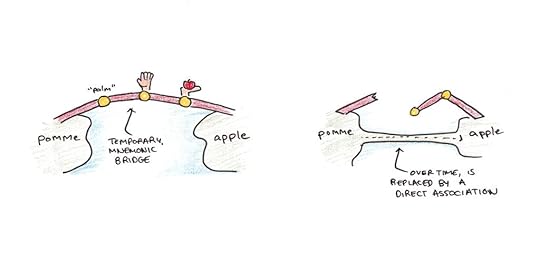 Why Not Both?
Why Not Both?Of course, flashcards and mnemonics are not mutually exclusive. You can use the keyword mnemonic when you first encounter a flashcard and then study it repeatedly. In this way, the temporary bridge offered by the mnemonic may be beneficial to learning.
This is the approach I’ve used when I’ve had to memorize a lot of material. I start with the keyword mnemonic, when that is relatively easy to do, and follow with a lot of spaced retrieval practice to make the association automatic and robust.
However, I think it’s worth examining the relative efficacy of the two techniques for a few reasons:
Many people get overly excited about mnemonics and use them instead of flashcards. I think this is often ill-advised for the reasons I’ve articulated above. Sometimes the material isn’t mnemonics-friendly. I found the keyword mnemonic great for learning vocabulary in European languages—but far less helpful for Asian languages. The “sounds like” method doesn’t easily discriminate between words in Chinese (which all sound like each other much more than they sound like words in English) so the first leg in the bridge is weak. However flashcards continued to work and were my primary tool for learning Chinese and Korean vocabulary.For those not trained in mnemonics, it’s worth asking how much time should be invested in acquiring the skills needed. While mnemonics have some valid use cases, they are often slow and cumbersome without lots of practice, meaning they are best reserved for situations where they’re likely to be used across many memory-intensive subjects.In short, if you are proficient with mnemonics, by all means, use them to supplement your flashcards. If you’re not, or your subject makes using them difficult, or you simply aren’t sure which one to prioritize, stick with the flashcards.
The post Why Flashcards Beat Mnemonics for Studying appeared first on Scott H Young.
May 30, 2023
When is Learning Worth the Effort?
One of the few lessons I recall from business school is the make-or-buy decision. Big companies often face a choice: should they make something in-house, or outsource it to a supplier?
The decision depends on many factors, but a big part is cost: will it be cheaper or more reliable if you invest in in-house production? Or does it make more sense to pay someone else to do it?
Decisions about whether or not to learn something are often similar. For almost any conceivable skill you can:
Learn to do it yourself.Hire someone else to do it.Avoid doing it entirely.Consider programming. You could learn to write code, hire a programmer to do it for you, or choose work and projects that don’t require you to create software.
Or language learning. You could learn to speak Mandarin, hire a translator, or avoid doing business with monolingual Mandarin speakers.
The same choice applies to countless other skills, from understanding the tax code to applying medical advice, repairing drywall or planting a garden. You can learn, outsource or avoid.
Learning Rarely Makes Sense Short-TermOne common feature of this problem is that the costs of learning rarely make sense if you’re only thinking about immediate benefits. Even if you’re the smartest person on earth, hiring a Mandarin translator, Java programmer or car mechanic to deal with your problem still takes less time and energy than learning to solve it yourself from scratch.
Yet, if you already know how to solve a problem, doing it yourself is often (but not always) the most effective option. Hiring people takes time, increases the possibility they won’t understand or be able to deliver what you want and can be more expensive.
Viewed this way, the optimal point for many learn-or-delegate decisions depends on your prior expertise:
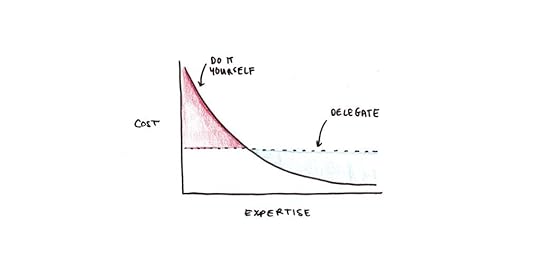
This analysis suggests you should do what you’re good at, and delegate what you’re not.
The major wrinkle in this approach is that your level of expertise isn’t constant. It varies depending on the amount of practice you’ve had on the problem. One of the most famous empirical results is the power law of practice, suggesting that many aspects of proficiency follow a roughly power-law relationship with the amount of practice.
The answer to the learn-or-delegate decision doesn’t depend only on your current level of expertise, but also on how often you expect to perform the skill. If you’re currently below the competency threshold where doing it yourself makes sense but will probably use the skill a lot, the total lifetime cost of learning may end up being less than delegating:
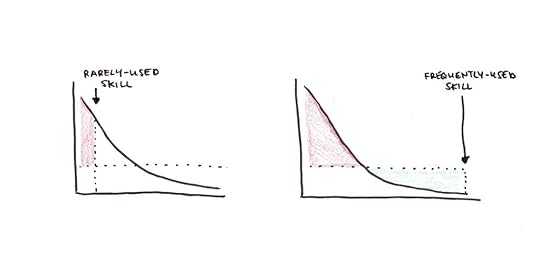
While I’m using an economic lens here, the reasoning still applies outside your job. How much I enjoy painting as a hobby depends on how good I feel I am at it. Thus there’s often an implicit learn-or-ignore decision with recreational activities that follows the same trade-off.
Do We Underinvest in Learning?To summarize, many decisions about learning have the following features:
Doing it yourself doesn’t initially pass a cost-benefit test.The more you practice, the lower the cost becomes.Thus whether it’s “worth it” to learn something depends on a far-sighted calculation of how much you’ll need to use the skill.Unfortunately our intrinsic motivational system is remarkably short-term in its focus. Immediate costs or payoffs influence our decision far more than long-term ones. Experiments show people often pay steep discount rates for delayed rewards, in ways that are inconsistent with any rational agent (even an extremely impulsive one).
This suggests we may be underinvesting in learning. We’re disinclined to practice skills that fail an initial cost-benefit analysis—even if our investment of practice would be profitable over the course of our lifetime.
This insight helped Vat and me while learning other languages. The costs of practicing a language are relatively high when you’re not consistently using it. In the short term, forcing yourself to interact in a new language is also costly. But, if you practice enough, speaking the language of the country you’re visiting becomes easier than sticking entirely within an English bubble. Adults are resourceful and frequently find ways to avoid using an unfamiliar language; the consequence is that few get anything close to the levels of exposure that young children can’t help but get when learning.
Matthew Effects in LearningAnother consequence of this basic model is that we should expect Matthew Effects in learning.
The Matthew Effect was first coined by sociologists Robert Merton and Harriet Zuckerman in their study of elite scientists. Eminent scientists often get more credit than unknown researchers for similar work, meaning that, over time, eminence tends to compound while less famous academics linger in obscurity.
Later, psychologist Keith Stanovich applied the same insight to reading. Those with a slight advantage in early reading ability had a slightly reduced cost of reading new material. This lead to them practicing more, further reducing the costs of reading. Given the connection between reading and other forms of learning, he even hypothesized that early reading ability might bootstrap intelligence by making it easier to acquire new skills and knowledge.
Research bears out Stanovich’s hypothesis. In a study looking at identical twins who varied in early reading ability, the slightly more proficient twin later showed gains in intelligence compared with their genetically-identical sibling. Skills beget skills; knowledge begets knowledge.
Specialization and Focusing on StrengthsAt this point, it’s helpful to clarify. I’m not suggesting that since learned skills get easier with practice, we should do everything for ourselves and never delegate.
This is false, even by the basic logic I’ve spelled out above. Some tasks simply aren’t encountered frequently enough to cross the cost/benefit threshold. I may never have an opportunity to speak Mongolian, so if I ever meet a monolingual Mongolian speaker, I’d be happy to lean on Google Translate.
Additionally, we can’t consider skills in isolation. Spending time learning one thing is an implicit decision not to learn something else. I could learn French, but that time is taken away from learning Mandarin. I could learn Javascript, but that time can’t also be spent learning Python.
Ultimately, specialization, not self-sufficiency, is the road to abundance in the world we live in today. We delegate the vast majority of skills in our lives, not because learning them all is impossible, but because getting really good at one thing makes sense when it’s relatively easy to delegate everything else.
Despite spending years learning programming, I do virtually none of it for my own business. Given that my writing is central to my business, and I don’t have enough time to do all the writing I’d like, hiring other people to do the programming makes more sense. Those people, in turn, tend to be much further along the expertise curve than I am because they’ve made a similar decision to specialize.
That being said, there are many instances where skills can’t easily be delegated. I might be able to hire out behind-the-scenes programming for my website, but it doesn’t save effort or cost to hire someone to read the research used to write the articles. If I don’t understand the research, I can’t weave it into the text I’m producing.
In other cases, delegation is an imperfect or inconvenient substitute for being able to do something yourself. Relying on a translator is not equivalent to being able to speak the language yourself when you move to another country. Being able to read a text isn’t made redundant if someone narrates it to you aloud. Thus being able to speak the language of the country you live in and being able to read are skills that are almost certainly worth mastering.
Thinking about Learning in the Long-TermI find it useful to keep in mind a few things when I face resistance to learning something new:
1. How much can I expect this skill to get easier with more practice?One way to estimate this is to look at people with varying degrees of experience. How much effort did it take them to do what you struggle with? The learning curve is quite steep for some skills—you get good relatively quickly. For others, the curve is flat for a long time—you may need to practice for years before you feel it’s worth the effort.
2. How much would I use the skill if I was better at it?Supposing you could reach the relatively flat part of the practice curve, how much would you use it?
If you live in a country that speaks a language you don’t know, learning that language would definitely pass the cost-benefit test. Learning a major world language you might use in work or educational contexts probably also does. A niche language that isn’t spoken much … maybe not? In this case, it may only be worth learning if you have a strong intrinsic motivation to learn it.
If a skill is central to your career, it may easily be worth the cost, even if it is initially difficult for you to learn. In contrast, a career skill that doesn’t fit well with your existing skills may go unused even if you’re nearly an expert—it’s simply cheaper to outsource.
3. How much would I enjoy the skill, conditional on being better at it?Economic rewards aren’t the only motivation. If you’re good at something, you tend to enjoy it more and draw personal satisfaction. But that’s more true of some skills than others. You might be particularly proud of being able to paint a realistic landscape but not feel too special about being able to file your taxes quickly.
Deciding when it makes sense to learn isn’t trivial, but given that our intuitions often give us a misleadingly short-term picture of what’s possible, it can be helpful to think more deeply about it.
The post When is Learning Worth the Effort? appeared first on Scott H Young.
May 23, 2023
Seven Steps for Making a Solid Studying Plan
A studying plan organizes three things:
What you have to learn.How you’re going to learn it.When you’re going to invest the time.Although it sounds simple, most students don’t make a detailed study plan. Of those that do, they often make mistakes that render the plan highly unrealistic—a recipe for future guilt, not future learning.
In this article, I’m going to outline how to make a studying plan—and how you can stick to it.
Why Make a Studying Plan?Learning is effortful. Although that effort can be enjoyable, our impulses about what to do in the moment often don’t coincide with what would maximize learning. Indeed, the research shows that students frequently choose activities that feel fun but don’t deliver results.
A good analogy is exercise. While playing a sport or going for a jog can be fun, our brains are designed to avoid unnecessary physical exertion. That’s why you rarely see anyone over the age of ten running down the street unless they’re late for an appointment.
If you want to develop fitness without injuring yourself, it helps to have a workout plan you can and will stick to, rather than just going to the gym whenever you feel like and working on whatever equipment you stumble into.
The logic is the same for studying. Having a plan maximizes the chance of investing effort where it counts to create learning.
Step One: Review Your Materials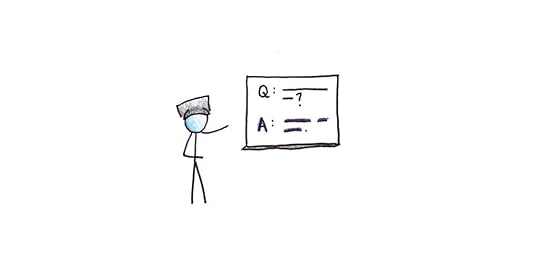
I’m assuming you’ve already chosen some class, book, tutorials or other curriculum to guide you. (If you haven’t, the first step is to do your research and find a good resource for the skill you’re trying to learn!)
The starting point is to review your curriculum and figure out:
What are the lessons you’ll need to watch/read/review?What are the practice activities you need to engage in?What are the required deliverables (essays/homework) you need to complete?How will you need to use the skills and knowledge you’ve gained? Consider things like the format of the final exam as well as where you plan to apply the skills and knowledge you’re learning.A pure practice project may be an exception. In this kind of project, you’re not working off materials but trying to practice or implement knowledge you’ve gained elsewhere. For a practice project, you’re creating your own curriculum, so you can choose your own pace. These tend to be more successful when you’ve gone beyond the beginner period and can more successfully guide your own practice.
Step Two: Calculate Your Minimum Time InvestmentThe minimum time investment includes all the work you must put in to complete the class as specified. This includes:
How long will it take to do the required readings?How long will it take to watch any videos/lectures/lessons?How long will it take to finish the required deliverables (homework, essays, projects)?Videos and recorded lectures are easy to estimate: you can add up the run time of all the videos. Will you be able to watch at an accelerated pace? If so, you can divide the total by the estimated playback rate (e.g., 1.5 or 2 times speed). Otherwise, this time is a fixed amount based on how long the lessons are.
For required readings, you need an estimate of your reading rate. You can get a first approximation by timing yourself reading a few pages and extrapolating that to the whole book. Read slowly and deliberately; the speed for long reading sessions is inevitably slower than a few-minute sprint.
Homework is hard to estimate in advance, but you may be able to get an estimate from the course provider, teacher or past students.
The general idea here is to calculate the minimum time investment to work through the materials you’ve been provided—without any additional studying.
Step Three: Estimate Additional Studying Time NeedsFor some classes, simply doing all the work assigned will allow you to pass the test and apply it in real life. But for most classes, you’ll have to go beyond this.
Some additional places you might expect to invest time are:
Extra practice questions/homework.Application to real-life problems and contexts.Creating/reviewing flashcards.Self-explanations, such as the Feynman Technique.Extra research not mentioned in the syllabus.A good way to estimate this is by looking at your personal historical data: how much time have you typically needed to invest, beyond the minimum curriculum, to achieve the results you want from the class? There’s no “correct” answer here. Some classes are time-intensive, and the required material is challenging to get through. Other classes are sparse and leave it to students to master the material on their own.
Step Four: Schedule Studying in Your CalendarOnce you have an itemized list of your expected time investment, you need to figure out when you’re actually going to do everything.
Put any due dates, exams, live lectures or lessons directly in your calendar. For reading, working on homework, practice efforts and other forms of studying, you should still allocate time for them, but there are two different ways to do it:
The most rigorous option is to schedule everything as an appointment. I recommend this approach if studying has to fit inside an already crowded schedule. So if you’re a busy parent and professional studying for a licensing exam, you’d better put studying time directly in your calendar, or it will get pushed to the side in the moment.The more flexible option is to create a weekly or daily routine. The exact activities in each block would vary depending on your goals, but the time commitments themselves would be relatively routine. For instance, you might decide to study every morning before work, or in the evenings, or on weekends.Step Five: Sanity CheckAt this point in the process, we can do a basic sanity check: how does your calculated time investment from Step Two and Step Three compare with the time you’ve scheduled? If your available time for the project is less than the estimated minimum, you’ve already got a non-starter. You need to clear more time in your schedule, rethink the aims of the learning project, or expand the timeline you are allowing to complete it.
If your available time is slightly over what you’ve budgeted, you have little room for error. Getting sick, an unexpectedly challenging topic or a surprise interruption could derail the whole project.
If you have substantially more time available than you’ve budgeted, that’s not necessarily a sign to relax. With too much slack, you might not feel the pressure to study when you need to and end up wasting time procrastinating. In those cases, I recommend setting soft deadlines that push the work ahead of the more relaxed schedule. This approach can keep the pressure comfortable but challenging, so you have more room for error later.
Step Six: Getting FeedbackMaking a plan is the easy part. The hard part is sticking to it. Fortunately, if you keep an eye on the feedback you’re getting while you’re studying and adjust accordingly, the plan you make can be an invaluable guide rather than something that gets tossed aside at the first brush with difficulty.
Consider these sources of feedback:
1. Feedback on sticking to your schedule.The first source of feedback is your ability to implement the plan. A helpful strategy is simply to write your intention on an agenda or planner each day and then record what you actually did. For example, you might have intended to study for three hours on Wednesday, but you were interrupted and only got in two hours.
Whenever there are deviations from your plan, it’s helpful to note the source of the obstacle. Even though you can’t control everything that deflects you from your plan, few obstacles are insurmountable if you can recognize them. Consider:
Deviations due to interruptions from others. Communicate boundaries for your studying time so others appreciate its importance. If you can’t avoid interruptions, find fall-back studying slots in your schedule to make up for occasional, unavoidable interruptions.Deviations from lack of preparation. Your computer died. You couldn’t log into your account to access the lesson. You had to buy colored pencils. Find a way to do these things before your scheduled session or eliminate them as unnecessary.Deviations because of procrastination/motivation. Use the Pomodoro technique, lower your expectations for proficiency in the session to avoid perfectionism, or alternate between reading/practice to avoid mind wandering or boredom.Learning is effortful and genuine obstacles can arise, making it hard to stick to one’s plan. However, if you can identify what is causing the interruptions, you can find remedies in many cases.
2. Feedback on your learning progress.The second source of feedback concerns your progress in learning. Sometimes skills and subjects gel instantly, and you don’t need to review them. In other cases, the new material can seem bewildering and exceed your estimates of how long it will take to master.
Once again, the key is to observe the feedback and break it down:
Are you struggling because the basics aren’t firmly entrenched? Drills, flashcards and repeated practice on simple problems can help fix this.Are you struggling because you don’t understand a difficult idea? Self-explanations, talking to teachers/peers/tutors and finding alternative explanatory sources can be helpful.Are you struggling because you can’t see what you’re doing wrong or how to improve it? Seeking coaching, corrective feedback or guidance may be helpful.The more granular you can be in identifying your problems, the easier they are to resolve. Zooming in on particular concepts, movements, facts or procedures is the key to getting past difficulties.
Step Seven: Making ModificationsOnce you’ve gotten some feedback, you may need to modify your plan. That might involve increasing the hours you invest if you’re falling behind, or you might change your routine so that you can actually invest the hours you said you would.
In the end, you may not stick to your plan with total rigidity. The primary benefit of planning isn’t to eliminate all improvisation and flexibility. Rather it’s to marshal the resources of time and energy needed to learn and identify obstacles ahead of time so you can avoid most of them. What’s ultimately useful is less the plan itself, but the thinking that goes into creating it.
The post Seven Steps for Making a Solid Studying Plan appeared first on Scott H Young.
May 16, 2023
Some Thoughts on Becoming Self-Actualized
A reader emailed me citing a few examples of people who abruptly changed their lives: they started exercising, built better habits, studied hard and got good grades, moved up in their careers … basically turning themselves into “successful” people seemingly overnight. He wanted to understand why this happens and ask how someone might attempt a similar transformation.
I’ve witnessed this kind of personality change in others several times, so I believe the phenomenon is real. A number of my friends suddenly became much more motivated, conscientious, organized and ambitious—often translating into better life outcomes for themselves.
It’s also something I’ve personally experienced. When I was around fifteen, I changed my diet, started waking up early, exercising regularly, reading books and trying various ways to be more productive. While the transition took place over a couple of years rather than a singular moment, it still a rather abrupt directional change in my personality that has culminated in who I am today.

Assuming, for a second, that my introspective self-report and anecdotal observations are accurate, I think the reader’s question is important and merits further discussion. Why do people sometimes abruptly become better versions of themselves? Perhaps more importantly, why does it so often seem to fail?
Discovering Self-ActualizationFor lack of a better term, I’ll call this kind of transformation discovering self-actualization. That sounds vague, but it’s the best way I can describe the experience. If you’re allergic to self-help jargon, perhaps another way of describing it might be “becoming an adult” or “getting your act together.”
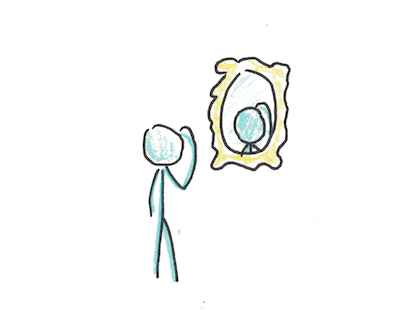
In my case, I think the changes were triggered by a fundamental restructuring of my belief system. Namely, I began to believe that there is considerable room for autonomy in making decisions over my life and that, if I chose wisely, those decisions could make a big difference in where my life ended up.
Wanting to start my own business was also a significant trigger. Something about the intrinsic appeal of being my own boss and having complete financial independence, combined with the inherent difficulty in succeeding in that goal, acted as a catalyst. Indeed, I’ve known quite a few people who have discovered self-actualization in the context of professional ambition.
For other people, the trigger was something more concrete. They read a particular book that changed their worldview (Getting Things Done, for many). They encountered a new-to-them religion, philosophy or spiritual practice (mindfulness meditation seems to be another common trigger for change).
Even if the exact cause is idiosyncratic, I see a few common features:
A belief that there are lives better than the one we are currently living. The central premise is that there’s a broad array of possible futures, and many of them are better than the default. This seems to hold even in philosophical views that reject most kinds of ambition. For instance, those interested in mindfulness meditation often spurn the idea that career ambitions should be made central to life. But they still believe that mindfulness will let them experience a better quality of life.A sudden, pervasive increase in self-efficacy. While Bandura’s original concept was decidedly granular, there do appear to be moments where you become more confident in succeeding at a broader range of actions.Increased valuation of delaying gratification and resisting impulses. The willingness to work hard, do things that make you feel uncomfortable and resist your immediate habits and impulses is also at work. Over a relatively short period, someone who might have struggled with sticking to an exercise program is suddenly taking on dozens of high-effort challenges.(Over)zealous application of the above changes. Often, people who experience a major paradigm shift are overly optimistic about the value of alternate versions of their life, overly confident about their ability to execute, and overly focused on self-improvement over momentary gratification.The Skeptic’s CritiqueOf course, I’m far from the first to notice this phenomenon. A lot of self-help gurus have built their entire marketing empires around selling people transformative life change. Tony Robbins, in particular, seems to make a big deal about these kinds of moments.
The skeptic would argue that these kinds of changes don’t typically last. Hype fades, and while getting excited about something is easy, we rarely change our personality or behavior permanently.
I tend to agree with the skeptic—most of the time. I suspect that most people experience one or, maybe, two of these shifts in their entire life. Many people may never experience it. Change, instead, is generally gradual and directionless. Sometimes we get in a bit better shape, sometimes we let ourselves go. Most bursts of self-improvement revert to the mean.
However, given the significance of these dramatic shifts, we shouldn’t round their probability to zero. Experiencing such a moment once or twice in your life might make up for dozens of other fizzled attempts at bettering yourself.
Why Does it Happen? Why Does it Fail?My speculative theory of these kinds of personal transformations is:
There’s a temporary change in your optimism, confidence and valuing of effort. This kind of momentary effect can come from reading a self-help book, having a role model who inspires you to work at something, or having a private epiphany.The environment creates a self-sustaining feedback loop. The easiest way to see this kind of positive feedback loop would be setting a goal, achieving it, and suddenly biasing your other estimates of self-efficacy or confidence upward.Once the initial feedback loop wears off, you’re already in a sufficiently “different” position for your life. Your habits and material circumstances of personal identity have shifted to a new equilibrium position, and you now maintain it.Under this theory, most self-improvement efforts fizzle because the momentary burst of enthusiasm doesn’t generate a self-sustaining feedback loop, and the equilibrium you reach is metastable. Eventually you decay back to the person you were before because a lot of gravity is pulling you back that way.
Even when this kind of transformative change occurs, I think there are probably limits on how far it can go. People’s beliefs about their malleability vary wildly around the actual figure. Some people suddenly become incredibly optimistic about their ability to become popular, successful, smart, enlightened, etc., as well as the converse, where people adopt a fixed view of themselves and believe change is impossible.
The transformations I’ve witnessed in other people tend to involve modestly unrealistic beliefs. This raises an interesting question of whether some amount of self-delusion helps in crossing over into a new equilibrium, even if it’s unsustainable. Were that true, though much-maligned by skeptics, this small break from reality may actually be key—a truly sober assessment of one’s possibilities may not encourage enough of a transitory change in your beliefs to shift over to a new equilibrium.
At the same time, it also seems clear that most changes are not of this magnitude. Discovering that you can take charge of your life is probably something you can only really do once or twice in your life. Once that’s firmly established in your beliefs, further adjustments are probably minor in comparison—tweaks to your habits, skills or perspective.
Since the world is flush with people pitching and persuading others to adopt a self-actualization belief set (even if it is partly delusional), a related question is why such transformations are relatively rare. My suspicion is that they’re harder to sustain because while it’s easy to find sources of inspiration, it’s much harder to locate the positive feedback loops that keep the motivation going.
Can You Trigger a Change in Yourself?Given that many of us would like to have a sudden, positive shift in the direction of our lives, is there anything we can do to facilitate this kind of transition?

I’m not sure. While I’ve witnessed it many times, the change itself happens as a by-product of something else rather than the person actively seeking it out.
However, I do think there are a few generic ingredients that may increase the likelihood of such a change:
Success with self-set ambitions. Self-efficacy seems to be a crucial motivational component here. It’s not enough to know that building a business, learning a language or getting in shape is possible. You have to believe you could do it. While achieving one thing doesn’t necessarily translate to across-the-board motivation, having more success is likely to encourage increased self-efficacy.Reading a lot of books with inspiring-but-credible messages. If modest self-delusion plays a role in initiating these transitions, the temporary boost you get from reading motivational material may increase your chances of hitting an inflection point. But inspiration fails if you don’t believe it. Hence, finding optimistic sources that seem credible to you is more important than just picking the cheesiest self-help title.Finding challenging, worthwhile goals. At least in my own case, I felt like the desire to start a business was a catalyst. The combination of an attractive goal and knowing I wouldn’t succeed unless I worked really hard seemed vital.More randomness. A final catalyst is having experiences that take you outside your comfort zone. The idea here is that greater variability in your day-to-day experience increases the likelihood of stumbling upon a positive feedback loop that alters your course in life.In the end, I’m not entirely sure why some people become obsessed with personal productivity, mindfulness meditation, exercising daily, building a business or becoming a straight-A student. I don’t know why the direction of their life seems to pivot abruptly after a particular experience. But I agree with the reader who emailed me that even if such transitions are rare, they seem important and poorly understood.
The post Some Thoughts on Becoming Self-Actualized appeared first on Scott H Young.
May 10, 2023
Ten Great Books on How to Learn Better
What are the best books to read to become a better learner? (Aside from my book, of course.) I get asked this question a lot, though most of my recent reading lists have been more academic and somewhat removed from immediate applications.
Today, I’d like to change that and share a list of some of my favorite approachable and actionable books on learning. Here’s ten I highly recommend.
1. How to Become a Straight-A Student by Cal Newport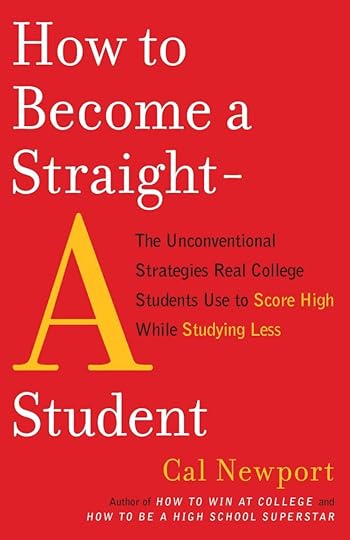
Although famous for Deep Work, Cal’s early books were aimed at students (that’s how we met). Straight-A is easily the best of Cal’s student-oriented trilogy. Cal derived the content and strategies he recommends from his interviews with relaxed, high-achieving students. He offers concrete, practical advice for getting through college without burning out.
Other great books by Cal Newport:
How to Win at CollegeHow to Become a High School SuperstarDeep Work2. A Mind for Numbers by Barbara Oakley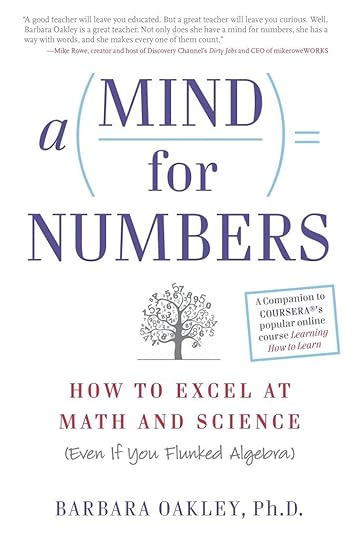
Barbara Oakley has a number of excellent books on learning. Her free course, Learning How to Learn, co-instructed with pioneering cognitive scientist Terrence Sejnowksi, is an excellent resource.
In A Mind for Numbers, Oakley shares how to tackle difficult quantitative subjects—even if you’ve struggled with math in the past. Oakley speaks from experience, having gone from a self-described “language person” to getting a PhD in engineering.
Other great books by Barbara Oakley:
Learning How to LearnUncommon Sense Teaching3. How We Learn by Stanislas Dehaene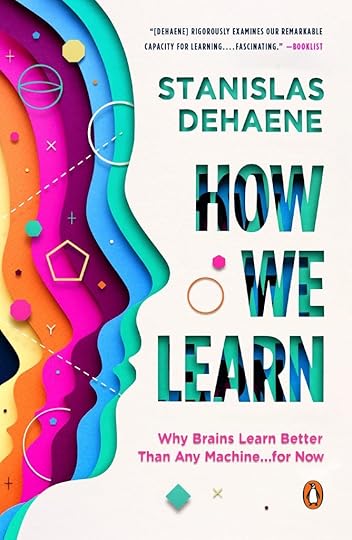
This book is an engaging tour through the science of learning led by one of the world’s leading cognitive neuroscientists. Dehaene elegantly links research on how we learn to the science of how the brain works.
Other great books by Stanislas Dehaene:
Reading in the BrainConsciousness and the Brain4. Why Don’t Students Like School? by Daniel Willingham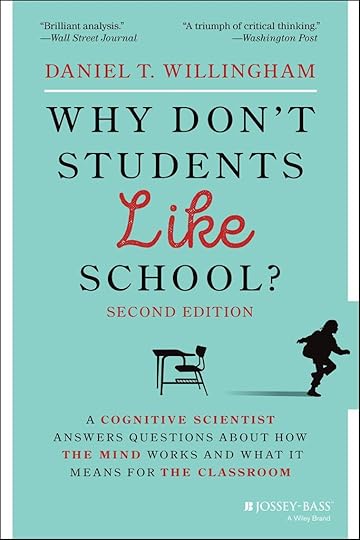
Daniel Willingham is one of my favorite educational psychologists who writes for a mass audience. This book argues for the importance of background knowledge, the crucial role attention plays in memory, and how cognition changes as we become more proficient.
Other great books by Daniel Willingham:
Outsmart Your BrainThe Reading Mind5. Make it Stick by Peter Brown, Henry Roediger and Mark McDaniel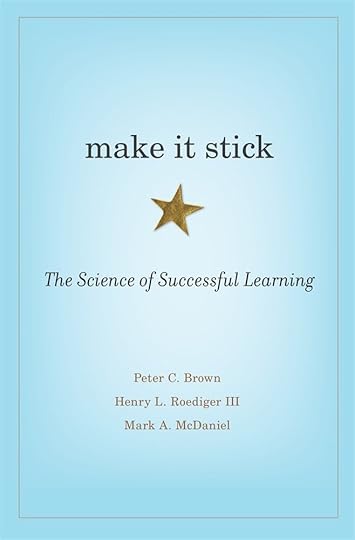
I confess I haven’t read this book in its entirety. But I have few qualms about recommending it because I’ve greatly benefited from Roediger’s academic work.
Retrieval practice, spacing, interleaving and other interventions improve learning, but—and this is key—we tend to be unaware of it. There is value in understanding and deploying these studying strategies precisely because they defy our intuitions.
6. The Power of Explicit Teaching and Direct Instruction by Greg Ashman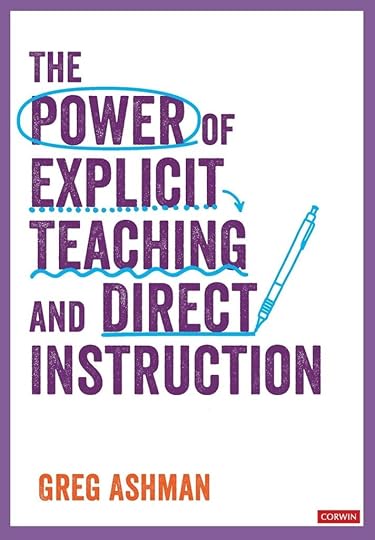
I’ve shared John Sweller’s Cognitive Load Theory on this blog before. Ashman, a disciple of Sweller’s, has written a powerful book explaining why cognitive load is central to learning how to learn.
Although the primary audience for this book is teachers, I found it very interesting as a learner. While Ashman’s advice—that teachers should fully and thoroughly teach their subjects—don’t sound surprising, it’s an important message because of the alternative theories it rejects. This book is a must-read if you’ve ever struggled with teaching or learning.
7. Peak by Anders Ericsson and Robert Pool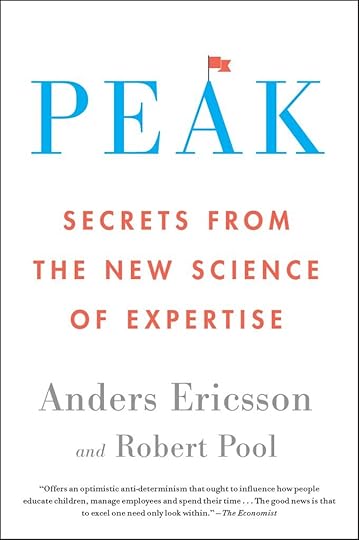
Anders Ericsson’s work is perhaps best known from Malcolm Gladwell’s book Outliers, or Geoffrey Colvin’s Talent is Overrated. Deliberate practice has become a buzzword in many circles, but this buzz has also created considerable misconceptions.
In this book, Ericsson works to set the record straight, arguing both for what deliberate practice is and what it isn’t. Ericsson argues that much of the prowess we see in elite performers is due to huge quantities of this specific kind of practice rather than talent alone.
8. How We Learn to Move by Rob Gray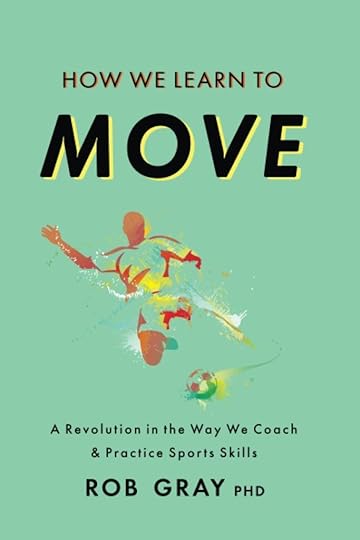
Movement skills have been a gap in my writing on learning. Gray’s book is a highly-readable summary that highlights some interesting research on how we might learn motor skills better.
⠀
⠀
⠀
9. How to Take Smart Notes by Sönke Ahrens
Zettelkasten systems, which allow you to organize notes for your studies, research or creative work, are all the rage these days. I’ve interviewed Tiago Forte for his book, which covers a similar topic.
Ahrens’s book is a helpful guide to zettelkasten as it’s a bit more nitty-gritty in the implementation details. If you want to know how to organize the things you learn, this book is a great place to start.
10. Moonwalking with Einstein by Joshua Foer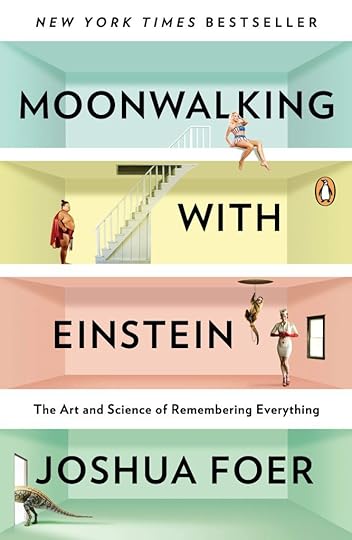
Joshua Foer dives into the strange world of super-memorizers. Using mnemonic systems, these people can memorize decks of cards, random digits or entire poems perfectly in around the same time it takes you or I to read them. Foer’s mixture of psychological science and first-person experience was a major inspiration when I wrote Ultralearning.
I tend to find mnemonics less helpful for studying than they are often hyped to be. From a practical perspective, I’d recommend Straight-A or Make it Stick above this book. But for a well-written tale to get you inspired to learn better, few books do it better.
Books for Learning Specific SubjectsIn addition to these more general learning how to learn books, there are a few specific ones I’ve found helpful:
Drawing on the Right Side of the Brain by Betty Edwards. Setting aside the dubious neuroscience, this book will change how you think about drawing. Highly recommended if you struggle with more than stick figures.Fluent Forever by Gabriel Wyner and Fluent in 3 Months by Benny Lewis offer two perspectives on language learning. I’ve long been friends with Benny Lewis, and his efforts inspired my own language-learning journeys. Wyner’s approach is also great.Learning Medicine: An Evidence-Based Guide. My go-to recommendation for med students.Math, Better Explained. My good friend, Kalid Azad, offers a guide to thinking about math in ways that make better sense.Of course, you can also check out my book, Ultralearning, for my thoughts on the subject!
The post Ten Great Books on How to Learn Better appeared first on Scott H Young.
May 2, 2023
10 Ways You Can Use ChatGPT to Learn Better
Recently, I asked readers here to share how they’re using large language models (LLMs) like ChatGPT to learn and study. Today, I’m rounding up some of those suggestions and trying to synthesize the advice for when (and when not) to use these tools for learning.
Strengths and Weaknesses of LLMsUsing applications like ChatGPT requires some care.
Part of the difficulty is that ChatGPT’s human-like conversation abilities can be deceptive. Feeling like you’re talking to a real person encourages you to rely on conversational expectations that may not hold with a machine.
For instance, we generally expect that most people do not make up facts. Large language models, however, routinely violate this expectation by providing fluent answers that may be totally wrong. The metacognitive ability to know what you don’t know is underdeveloped in these applications.
Another expectation we have is that verbal fluency tracks other aspects of intelligence. We expect that someone who can spout lines from Shakespeare, explain quantum computing, and give a proof of the prime number theorem in rhyming verse would also be able to count. Thus, naively treating LLMs like a really smart and knowledgeable person is likely to backfire.
Those caveats aside, ChatGPT is clearly helpful for a range of tasks. Simon Willison suggests thinking of LLMs as a “calculator for words”—something that can do useful things with text—rather than as a general-purpose intelligence or smart person.
I tend to agree. The more we can distinguish the cases where LLMs work well from where they don’t (yet), the more we’ll be able to take advantage of the new capabilities without falling into unexpected traps.
Ten Useful Learning Strategies with ChatGPTAfter receiving dozens of emails from my audience on how they have been personally using ChatGPT to learn, I’ve compiled some tips with some of the most common suggestions.
1. Create your own Socratic tutor.By far, the most common use readers reported was using an LLM as a personal tutor.
Asking ChatGPT to explain tricky concepts, unfamiliar code or problems seems like an area where LLMs might do alright. And the only reasonable substitute (a human expert) is notoriously expensive and in short supply.
If you do this in conjunction with a class or textbook, the risks of mistakes also seem attenuated since you still have a primary source to compare against. Challenge explanations that don’t jive with what you’ve read in the book rather than taking everything the AI says at face value.
2. Practice chatting in new languages.The next most common way people used LLMs to learn better was as a language tutor. This seems like a task LLMs are well-equipped for. Whatever their other flaws, they can produce grammatically correct text.
Many people set up their conversations with ChatGPT so that the AI could go back and forth between the language they are learning and English explanations when they got confused. Likely, those explanations may be imperfect, but human tutors also often give incorrect accounts of the grammar and vocabulary they manage to use proficiently.
Another use is rewriting texts to be at a more beginner-friendly level of reading comprehension. Graded readers and comprehensive input are great strategies for learning to read in another language. Unfortunately, learner materials are often sparse or uninteresting. You can use an LLM to transform a text you want to read that is written at a fluent native level into something appropriate for your current ability.
Duolingo seems to be getting in on the LLM game as well. I’ve been harsh on the drag-and-drop style of language learning used in earlier versions, but these new advances may force me to revise my opinion.
3. Generate summaries of longer texts.Summaries are another area where LLMs seem to excel. Consumer applications already exist for generating summaries of journal articles or research topics.
Several readers said they were using these AI tools to provide digests of their substantial reading material, helping them keep atop new developments in their field.
Good summaries, especially those fine-tuned to your particular needs, might be a good way of navigating the large information loads we often face in knowledge work. You could use it to help prioritize which documents to read in-depth or do a first pass organizing unfamiliar material.
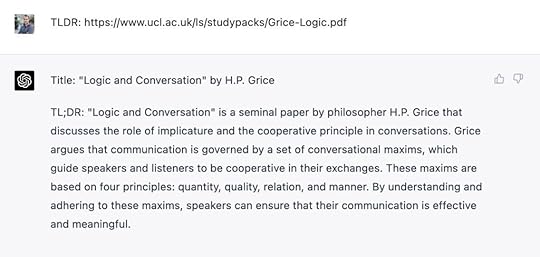 4. Dialog with long documents.
4. Dialog with long documents.LLMs also can help you “ask questions” of longer texts. For instance, when reading a scientific paper you could quickly query the sample size or ask for the methodology or results. Consensus does this while offering references, so the risk of mistakes seems reduced when you can easily double-check the LLM’s work.
While there are more fanciful usages here, such as people asking ChatGPT to impersonate a given writer and dialog with them, I suspect the ability to ask natural-language questions of documents and receive replies with references is a useful tool for dealing with large texts.
That said, you must be prepared to fact-check the LLM’s answers. For instance, in the dialog captured below, I asked ChatGPT to list evidence supporting strongly-guided instruction, and it cited a review article by Mayer. But it falsely claimed Mayer’s work was a meta-analysis, which it isn’t. In fact, the paper isn’t even a comprehensive literature review but simply looks at three prominent cases of the failure of discovery learning. If taken at face value, this response can potentially mislead, but it’s relatively easy to “check” the AI’s work if you know what text it is transforming.
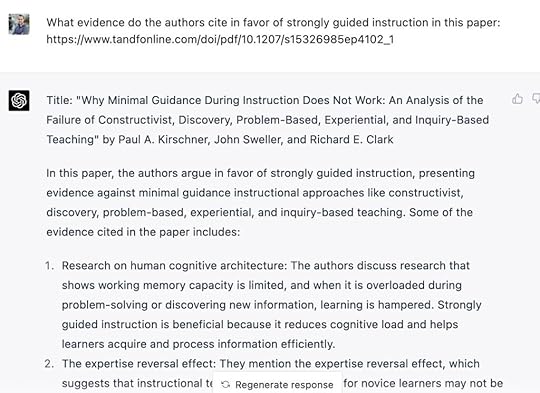 5. Rewrite texts at different levels of explanatory depth.
5. Rewrite texts at different levels of explanatory depth.A major difficulty in following expert thinking is that most expert-level text is written for other experts. Concepts are unexplained, context is lacking and jargon abounds. This means that most people must rely on translators, such as general-market nonfiction or science writers, who present what experts think in a more readable format.
There seem to be two approaches to using AI tools here. One is simply asking an LLM to explain a popular concept in simpler terms, such as: “Explain quantum computing like I’m an eighth-grader.” The other is to provide ChatGPT with a text or explanation and ask the AI to rewrite it in a more digestible manner.
I tend to think the latter is a little more reliable since you have the source material to compare with rather than taking ChatGPT’s word for it.
6. Clear up unfamiliar jargon.Several years ago, I remember reading Tyler Cowen’s Marginal Revolution blog and being perplexed by his frequent, unexplained use of the term “Straussian” to describe ideas or other thinkers. I Googled for an explanation, but none was forthcoming.
After a lot of research, I understood the term as meaning, roughly, “closely reading between the lines in prominent thinkers’ ideas, looking for what they really meant but couldn’t always express because of prevailing censorship and intellectual orthodoxy.”
Had ChatGPT existed during my confusion, I could have just gotten this:
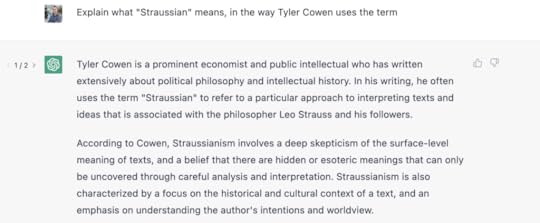
Many readers found similar benefits in using LLMs to figure out jargon and terms used within a particular community in a way that dictionary definitions often fail to elucidate.
7. Create study plans and agendas.This usage surprised me, but it showed up enough times among reader replies that I include it here. People seem to like using AI to tell them how and when to learn.
For instance, some readers asked ChatGPT to break down a complex learning goal and give them a curriculum. Others preferred to go even further, asking for ChatGPT to create a studying schedule for them, given their constraints for the day.
I probably wouldn’t trust LLMs to give me a well-designed curriculum for a subject. But if I was learning something completely new, it might be a decent starting point. Sometimes the hardest part of approaching a new field is breaking down what appears to be an insurmountable goal. Similarly, sometimes being told when to study can help overcome the inertia of getting started.
While skill breakdowns might be alright, ChatGPT still struggles with creating reading lists, confabulating books and references. Thus, while it might do well for decomposing an ambiguous learning task, I wouldn’t trust it to give me good resources (yet).
8. Provide refreshers on forgotten or infrequently used tools.Programmers were the biggest professional group to reply to my query. I can’t say whether this is because programming is uniquely well-suited to LLMs or because programmers, as a group, are more likely to adopt novel software tools.
The productivity advantages for programmers seem obvious. I don’t write much code these days, so I haven’t made much use of this well-publicized feature of LLMs. But since a lot of coding is relatively routine, the ability to have a machine create the first draft for an algorithm clearly saves a lot of time.
While there are cases of people with zero programming knowledge relying on AI output to build applications, I suspect these might be tricky to debug and maintain. In contrast, an expert programmer can override ChatGPT’s output for a language he or she knows particularly well.
The place LLMs seem to work really well is at the fringes of a programmer’s expertise. Many programmers told me that they found AI helpful in getting starting hints in unfamiliar languages or tools. Their base of programming experience allowed them to make sense of and implement the output, but their unfamiliarity with the underlying language meant the AI saved them a lot of time.
9. Generate flashcards based on text. (Tentative)Flashcards are a powerful learning tool. They’re also a pain in the butt to make.
Some readers said they were using ChatGPT to generate flashcards for subjects they’re studying. This seems well within the LLM abilities as a “calculator for words.” Thus, with the correct prompts, you could get fairly good results here—provided you’re inputting the material you wish to see transformed into flashcards and not expecting the LLM to get the facts on its own (see below).
However, given the difficulty of making “good” flashcards, I wouldn’t enter any into my Anki without reviewing them first. Nonetheless, making flashcards is tedious, so getting a first draft that I later review might speed up the process considerably. The risks seem relatively limited if you confirm the cards’ correctness before putting them in your deck.
10. Use it to organize your notes. (Advanced)As someone who does a lot of research, I often waste a lot of time trying to locate my notes. Robert Martin finds the same problem. Searching via keywords is fraught because sometimes you can’t remember the exact term you used, even if the meaning is roughly the same.
Martin solves this problem by using the embedding feature of LLMs. While not strictly ChatGPT, this tool from the same family of natural language processing techniques allows you to find semantically-related notes rather than exact keyword matches.
Personalized LLMs that live on your hard drive and access your existing data may be a valuable application. I’d love to be able to search things I know I’ve seen but can’t quite recall where.
Some Things NOT To Do1. Don’t expect AI to get facts right.LLMs frequently make stuff up. These hallucinations are problematic if you depend on ChatGPT to give correct answers. The prevalence of these mistakes is difficult to say right now. When Wikipedia was released, for instance, “experts” were in an uproar about how the user-generated nature of the website meant it couldn’t ever be relied upon as a source. Except Wikipedia actually does fairly well, and some of these knee-jerk reactions were misplaced.
LLMs haven’t reached Wikipedia’s quality in terms of facts, and we still don’t know much about when they’re likely to get an answer right and when they’re likely to make stuff up. For now, it seems best to use them for situations where the cost of an incorrect answer is minimal, either because you can look it up in a verified source, or because your use of the AI for isn’t factual in nature.
2. Don’t expect AI to get citations right.While LLMs sometimes mess up facts, they seem abysmal at getting citations right. They frequently invent authors, papers, studies and research.
I wouldn’t use a LLM for any research that I needed to cite, and I would always double-check the sources it does provide.
Similarly, I wouldn’t ask an LLM to give me a reading list or references to specific books or authors (unless, possibly, the authors were quite famous and likely to be well-represented in the data set).
3. Don’t expect AI to get the math right.I believe it’s a mistake to attribute general intelligence to LLMs based on their ability to do many tasks at a human level or beyond. As with chess bots and image classifiers, the technology behind LLMs is extremely narrow compared to what we would expect of a human who scored similarly on verbal tests.
One finding from psychology is that much of reasoning is performed by different subsystems in the brain than those devoted to language. This paper argues that LLMs seem to match the neurological evidence from double-dissociation studies: you can have fluent verbal abilities with seriously impaired reasoning and vice versa.
As such, LLMs are really bad at math. And not just higher-level math that humans struggle with. LLMs often fail at basic counting tasks. Thus I suspect LLMs would be uniquely bad at a task like providing practice problems for a math class and grading the answers. ChatGPT might be able to explain a math concept well, but be unreliable at actually using it.
Have you used ChatGPT or other AI tools to further your learning? Share your own observations and suggestions in the comments below!
The post 10 Ways You Can Use ChatGPT to Learn Better appeared first on Scott H Young.
April 25, 2023
No, ChatGPT Doesn’t Mean You Don’t Need to Learn Things
I’m finishing up a longer post incorporating some of the many useful and interesting suggestions readers shared about how they use ChatGPT to learn languages, programming, mathematics and more. However, before I share that post, I’d like to address a different question.
One question a few readers have is whether ChatGPT will eliminate the need to learn things. After all, if you can easily ask the machine a question and it will spit out an expert-like answer, what’s the point of getting students to write essays, memorize facts or try to remember a lot of knowledge?
Like everyone, I’m gobsmacked by the performance of large language models like ChatGPT and other forms of generative AI. That said, it’s hard to predict things, especially about the future. And I suspect the evolution of new AI tools is harder to predict than most things. We have poor intuitions about what sorts of problems machines can solve, and so the general discourse around AI as a field tends to swing between wild pessimism and optimism as we learn more about the path ahead.
One thing I am reasonably confident predicting, however, is that LLMs won’t make learning obsolete.
Why Learning Still MattersOne reason I can feel confident about the continued value of learning is that while ChatGPT is novel, the kind of technological change it has brought about is not.
Humans have been inventing technology that has replaced aspects of cognitive work for thousands of years. In every case, the result of that substitution was not a diminishing of the need for skills and knowledge—but an increase.
Consider the impact of writing. Human knowledge used to be transmitted orally. When writing became available, thinkers such as Socrates decried the damage it would do to people’s memory. We no longer need to memorize speeches if the full text is written down.
Or consider calculators, which have been widespread for decades. You probably have one on your smartphone. While they certainly eliminate the need to learn some skills (I have no idea how to use a slide rule, for instance), we still have to understand arithmetic to use a calculator to get the answer we seek, even if the machine does the actual computation.
A robust finding in educational psychology is the importance of background knowledge. People who know more about a subject can understand and retain more of what they read. Knowledge outside your head doesn’t count, since it can’t participate in learning and reasoning.
Similarly, even if you use a calculator all the time, you understand math better when you first learn to do it by hand. Working through low-level calculations creates conceptual and procedural skills that build an intuitive sense for the underlying algorithms. While you can save effort by using a calculator, the intuition you gained from your initial learning helps you recognize if the calculation is correct and how to fix things when they go wrong.
The ability to look something up is not a substitute for having knowledge in your head.
Will ChatGPT Change What Knowledge Matters?So perhaps we can safely reject the extreme position that learning will become obsolete. Won’t LLMs change what kind of knowledge is worth learning?
This is probably the case. But it’s not obvious to me what the transition will be, and I don’t think most people’s intuitions on this are correct either.
The gut reaction seems to be that since large language models can easily spit out an explanation to any question answerable within the sphere of well-documented human knowledge, LLMs devalue this kind of book learning.
Even putting aside the hallucinations and failings of current LLMs and assuming engineers perfect the technology to the point where it rarely gets these questions wrong, I’m not sure this intuition is correct.
As mentioned in the research on background knowledge, your ability to ask a useful question and then understand an LLM’s answer depends heavily on the knowledge you already possess. For instance, economist and polymath Tyler Cowen argues that asking an economics question to ChatGPT goes better if you ask it to answer in the style of Milton Friedman or Paul Krugman. Your own economics knowledge allows you to extract knowledge from the LLM more accurately.
This isn’t a new phenomenon. If the answers to all the world’s questions were already on the Internet, but you didn’t know where to look, they’d be invisible to you.
Contrary to the supposition that book learning will be less relevant, I suspect that it will be more important. The people who get the most programming help from ChatGPT are existing programmers—since their knowledge allows them to ask well-formulated programming questions and accurately assess the results. LLMs may accelerate the need for knowledge, since the combination of [knowledgeable person + ChatGPT] will outperform [ignorant person + ChatGPT] by a wider margin than exists between the two people on their own.
What Subjects/Skills are Still Worth Learning?A few people wrote to me wondering whether it even makes sense to learn second languages, programming, creative writing or art, given the ever-increasing powers of these applications.
My feeling is that, on the whole, the value of these skills hasn’t changed much. What will probably change is the differential value of mastery versus novice levels of various skills. There may be fewer professional opportunities available for mediocre programmers, writers, artists or translators. This kind of skill polarization has been going on for a long time, as I documented in my book Ultralearning. ChatGPT is just a continuation of current trends.
But just as there’s a diminished value for someone who can crank out stock art or kludge together a website, there’s probably increased value for those sophisticated enough to use these tools in collaboration with their professional expertise.
What if we get genuinely general artificial intelligence? An application so advanced it can perform any cognitive task better than a person, or indeed, better than a person in collaboration with a machine? Chess seems to provide an illustrative example, with top chess engines picking better moves than top players—even those who have access to top chess engines.
In the extreme case, all bets are off. Perhaps we’ll live in a utopian future where machines do all the work and people do cognitive activities for leisure or showing off, much like gardening is a hobby, not agriculture. Or perhaps we’ll all get turned into paperclips. Who knows?
But, despite the uncertain long-term forecast, I’m fairly confident that the short-to-medium-term impact of tools like ChatGPT will not be to devalue learning complex skills and knowledge, but will actually increase the value of these activities. As with other technological advances that have come before, it will be the quick and enthusiastic learners who reap the benefits.
The post No, ChatGPT Doesn’t Mean You Don’t Need to Learn Things appeared first on Scott H Young.
April 18, 2023
How Much Transfer Should We Expect Between Skills?
Transfer occurs when learning one thing helps you learn or do something else. It’s arguably the most important issue in educational psychology. After all, we spend years in the classroom. One would hope the things we learn make us more productive on the job, conscientious as citizens or intelligent in our daily lives.
Yet it turns out the titular question is really difficult to answer. This is because the answer depends on three different questions, each of which is itself incredibly complicated:
How do we perform skills?How do we acquire them?What sorts of skills are used in real life?About two years ago, I started a research project to learn everything I could about transfer. It quickly became clear that understanding transfer depended on answering the other three questions, so my research broadened drastically.
Despite two years of research and a lot of writing about transfer (including a chapter of my book), I still don’t have a definitive answer for how much transfer we can expect. But I’d like to share at least how I’ve come to think about the issue.
Question One: How Do We Perform Skills?Essentially, transfer is a product of overlap. We should expect transfer from one skill to another when something in those two skills is essentially the same.

Nearly every well-articulated theory of transfer is an overlap theory. What differs between theories is the “something” which potentially overlaps. Let’s consider some candidates:
Broad mental faculties. In this framework, “reasoning” or “memory” overlap across different skills. This theory likens the mind to a muscle that can be strengthened through many types of practice. This would suggest transfer is quite broad and that almost any strenuous mental activity should produce benefits.Stimulus-response. Perhaps, per the behaviorists, the mind is merely a collection of habits, stimulus leading inevitably to response? This view would suggest transfer is extraordinarily limited—every superficial change in a situation would require a new skill.Propositions and productions. Theories like ACT-R argue that our brains store skills in essentially two forms: small chunks of factual knowledge and simple component procedures. Complex skills and knowledge are simply aggregates of these foundational pieces.Schemas. Schema-based theories claim that knowledge is organized in patterns larger than individual actions or chunks. These patterns roughly correspond to “templates” with both fixed and variable components. For instance, we might have a “birthday party” schema that includes birthday cake and presents, but only optionally clowns or pointy paper hats.Neural networks. The brain is made out of neurons, and we have some idea of how those neurons process information. Connectionist theories take these basic neuronal properties as a starting point and posit theories of learning based on them. Teasing out implications for transfer is harder here, but it would most likely look like an overlap in the synaptic connectivity between two skills.Activity systems. Perhaps transfer isn’t in our heads but is a property of our broader social and physical environments? In this view, the person relies on their environment to perform a skill, and transfer fails when those environmental supports are altered.Only the first two seem to be demonstrably false. The mind is not like a muscle, nor is it a simplistic stimulus-response device.
I find the information-processing perspective of cognitive science to be the most persuasive. The mind is essentially computational (although quite different from computers made out of transistors). Answering the question of transfer depends on how the algorithms for skills are composed.
From this perspective, what seems safe to say is that skills can only reliably influence each other if they overlap in either their procedures or knowledge. If two skills don’t use the same process, and the knowledge they depend on is different, there shouldn’t be much (if any) transfer.1
Question Two: How Do We Acquire Skills?How the mind represents skills is only one part of understanding transfer. There’s also the issue of how we acquire these representations.
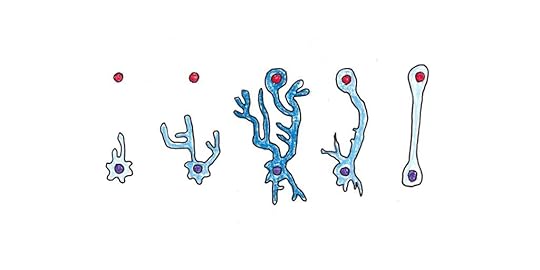
Here, a few things seem pertinent:
Expert-novice differences. Experts appear to represent ideas at a deeper level than novices. The most likely explanation is that skills become more abstract as we encounter more examples and learn to generalize and distinguish concepts.Automaticity effects. Skills tend to recede from conscious awareness with experience. There are many different proposed mechanisms for this in psychology, but a consequence seems to be that how the expert thinks they perform a skill may not fully capture what they’re actually doing.2Mnemonic effects. Another complication is that even if there is no overlap between two skills in expert performance, there might be an overlap at an earlier stage of acquisition. Vimla Patel has explored this in medical cognition. She comments on the finding that basic science tends to be used infrequently in clinical practice. However, that doesn’t mean learning basic science is useless for doctors because it forms a scaffolding for making sense of clinical knowledge, thus aiding in its acquisition.Declarative-to-procedural transitions. Another characteristic progression in learning is for skills to start as declarative knowledge—things we know and think about explicitly—and shift to procedural knowledge—actions we take automatically. This transformation implies that skills may have different patterns of transfer at different levels of mastery as their dominant mental representation changes.Cognitive load. Different training activities work better for different stages of skill acquisition and working memory capacity. Studying an example, for instance, is better than solving a problem when cognitive load is high, but the opposite is true when cognitive load is low. Efficiency of practice, then, is more than just a question of overlap but also of the stage of learning. Early on, drills, practice on component skills and structured lessons are more helpful. Later on, complex, realistic practice matters more.On top of these psychological details, there’s the issue of pedagogy. There are often multiple methods for teaching something. Those methods have varying levels of generality and can apply to a broader or narrower range of concepts. Transfer, then, also depends on how something is taught.
My sense from reading this research is that there are a few pitfalls to avoid:
Don’t judge transfer potential by the abilities of novices. Novices have a more superficial, context-bound understanding. That’s more indicative of their phase of skill acquisition than the ultimate potential for transfer. Don’t judge transfer on one-shot problem-solving tests. Problems often require many pieces of knowledge and procedures to solve correctly. Failure in the tested task could mean a complete failure of transfer, or it could mean that a person is 99% of the way there but still missing one piece. A better test is to train a person on task A, then on task B, and measure the time savings on B from the knowledge and skills acquired in A.Don’t trust experts’ perceptions of how they do a task. Experts are bad at introspecting their cognitive procedures. We tend to underrate knowledge we’ve already acquired, seeing it as obvious. The ease of automaticity fools us into thinking the complex skills we perform are simple. This can lead to an inappropriate devaluing of “basic” skills.Question Three: How are Skills Used in Real Life?The final question is about the kinds of cognitive activities people engage in during work, school and daily life.
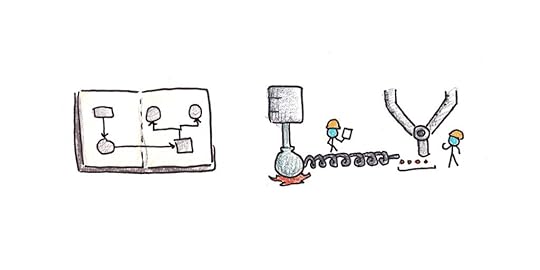
While possibly the most relevant question of the three, it is also the hardest to answer. Few studies have looked systematically at the kinds of cognitive skills people regularly employ at work and at home.
Critics allege that much of what we learn in school has little real-world application.
John Anderson reports that employers either want very basic skills (which the educational system should already be teaching) or highly specific skills that no universal curriculum could aspire to. Similarly, Peter Cappelli argues that surveys show employers tend not to highly value academic skills.
Jean Lave found that the mathematics taught in school is rarely what people use in their daily routines.
Bryan Caplan argues that much of education is signaling—showing others we have smarts, conformity and work-ethic—rather than cultivating those abilities. From this perspective, the real purpose of schools is to sort people, not to teach useful skills. School knowledge doesn’t apply to real life, Caplan argues, because that’s not the function it serves in society.
Supporters of education argue that just because most skills aren’t used doesn’t mean they’re useless. We may become specialists of one sort or another, but unless we assign everyone a career at birth, we want to maintain maximum flexibility until our adult years. A side-effect of this desire to maintain flexibility is that we end up learning a lot that we don’t ever end up using, or that is insufficiently concrete to apply in practice without further training.
Similarly, education proponents point out that just because a skill isn’t used doesn’t mean it can’t be. Statistics is a powerful tool for reasoning about many important issues. The fact that people are statistically naive shows we should be teaching them more, not declaring it impotent!
Whether we apply a skill in a new context depends on the effort it requires. Practice can lower the effort of applying a skill in real life and create more situations where it is convenient to use. Imagine rewinding time to before widespread literacy; it would be perverse to argue that reading isn’t useful because most people don’t read.
My perspective is that, while many academic subjects aren’t used, it’s difficult to appreciate a subject until you learn it. Given that we generally cannot “infer” a domain of knowledge simply by encountering problems that apply it, this argument favors accumulating more knowledge than you think you’ll need.
Side Note: Transfer of Effort, Motivation and “Noncognitive” SkillsThus far I’ve been looking at transfer through a cognitive lens. A somewhat separate issue is the transfer of things like the ability to focus and study for long periods of time, the ability to resist temptations, or the motivation to want to learn.
Many of the same arguments used above apply to noncognitive skills as well. There’s unlikely to be something like a general faculty you can improve with bulk training efforts for motivation, persistence or focus.
That said, the arguments about transfer here are somewhat different because these are not complex skills (in the information processing sense of “complex”). Sitting at your desk and focusing for eight hours may be difficult, but it’s not computationally demanding.
Thus while I think it’s ridiculous to imagine improving your memory by memorizing Latin verbs, it’s not ridiculous to imagine improving your ability to focus by regularly sitting down to focus. Believing that cognitive skills are highly specific, and should show limited transfer, is not logically incompatible with a more general transfer of effort or persistence.
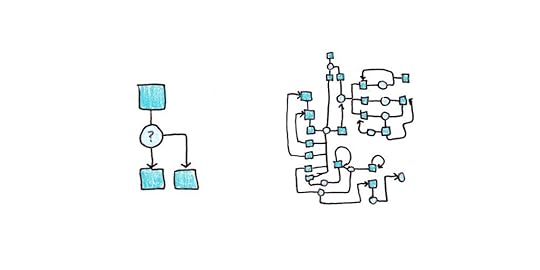
I might write a fuller summary of my views later, but I want to clarify that while “speaking French” and “being able to focus” are both discussed as skills, they have a different locus of difficulty. French is hard because there are lots of words, grammar and mental processes you need to perform it. Focusing is hard because the naive reward center of your brain wants to go on Twitter instead.
Summarizing My Thoughts on TransferIf you take one thing from this article, it should be that transfer is complicated.
As a practical takeaway, I would agree with roughly the following:
Transfer should be minimal between unrelated skills. Transfer between related subjects depends on how much they overlap in content and procedures, with the caveat that those content and procedures may extend beyond what is traditionally thought of as the curriculum.3Academic subjects can transfer to real life, but this transfer can fail because:We are missing components of the skill for applying it. This can include “recognizing” when an academically learned skill applies (for instance, applying algebra to a real-life quantitative problem).We haven’t automated the skill enough to pass the cost-benefit threshold.We can’t actually perform the skill with only our academic ability.Many academic skills are inert, but they’re still potentially helpful for accelerating learning that builds upon them.All else being equal, practice on more cognitively similar tasks should maximize overlap and, thus, future transfer. However, there are important exceptions to this because of cognitive load, retrieval effects and overall difficulty. Therefore identifying the most beneficial practice activity may be more complicated than simply matching it with the activity you’re trying to get good at.4The post How Much Transfer Should We Expect Between Skills? appeared first on Scott H Young.
April 11, 2023
Ten of My Favorite Papers on the Science of Learning and Thinking
I’ve shared some reading lists based on my research for my upcoming book. But in addition to the 140 or so books I’ve read for the project, I’ve also read around 500 scientific papers. While most academic papers don’t make for lively reading, the best are fascinating.
Here I’d like to share a selection of some of the papers that had a significant influence on my thinking and might do the same for you too:
Side note: I’ve tried, when possible, to include links that follow to a PDF in case you want to read it yourself. Where that was unavailable, you’ll be on your own… cough Sci-Hub cough cough
1. Why Minimal Guidance During Instruction Does Not Work: An Analysis of the Failure of Constructivist, Discovery, Problem-Based, Experiential, and Inquiry-Based Teaching by Paul Kirschner, John Sweller and Richard ClarkA major debate in educational research concerns the relative merits of direct instruction versus methods that rely on exploration, problem-solving or experiential learning, often called “constructivist” teaching approaches.
Constructivism has an intuitive appeal. Students are often bored and disengaged in lectures. They fail to transfer what they learn to the real world. Real life involves active effort and problem-solving, whereas so much of traditional schooling seems to be regurgitation of memorized facts.
The authors here argue that those intuitions are misguided. The research favors strongly-guided forms of instruction. Methods in which skills are carefully explained and taught consistently outperform methods that rely on students discovering, inventing or creating their own solutions.
This paper attracted enough controversy that an entire book was created with various experts weighing in on both sides. Ultimately, I think those favoring direct instruction made the better case, but the debate is almost certainly not over.
2. Conditions for Intuitive Expertise: A Failure to Disagree by Daniel Kahneman and Gary KleinHow good are experts?
The two authors of this paper devoted their research careers to this question—and have come to very different conclusions.
Daniel Kahneman is famous for his work on heuristics and biases. His studies show how faulty our reasoning typically is, even in areas where we have extensive experience. Other research shows that experts often perform poorly, despite considerable confidence.1
Gary Klein has spent years studying top performers in naturalistic environments. His work with firefighters found that they often quickly make the right decision without stopping to weigh costs and benefits.
Despite their differences, the duo agree on much. Intuitive expertise is only possible when we are in favorable learning environments. There must be highly valid cues that indicate the nature of the situation, and we must have an opportunity to learn those cues through instruction and rapid feedback.
3. When and Where Do We Apply What We Learn? A Taxonomy for Far Transfer by Susan Barnett and Stephen CeciTransfer is undoubtedly the most important issue in education. We’re engaging in transfer whenever we learn something in one setting and apply it in another. Thus, the utility of any school, book, course or training experience hinges on transfer.
Despite this, many more studies report failures of transfer than robust successes, and the causes of this have been endlessly debated.
Barnett and Ceci review some of the research while adding that what we call “transfer” can really be broken down into several different dimensions, such as:
Transfer between domains (e.g., learning about exponential growth in a biology class and applying it to the stock market)Transfer between contexts (e.g., learning to multiply in school and then applying that at the grocery store)Transfer over time (e.g., learning something in 9th grade and applying it during your working life)My opinion is that resolving questions about transfer is so difficult because they’re actually questions about how the mind works. Knowing how much transfer is possible hinges directly on how the mind represents skills and knowledge. Until a consensus theory emerges, transfer will continue to attract debate.
4. Self-Efficacy: Toward a Unifying Theory of Behavioral Change by Albert BanduraClassic theories of motivation focused on the relationship between outcome expectations and our willingness to act. Under these theories, we take actions we believe will be rewarded.
Bandura modified this by suggesting another variable: do we believe we can execute the action needed to get the result? If our self-efficacy is low, we may think that success is valuable but still fail to find the motivation to take action.
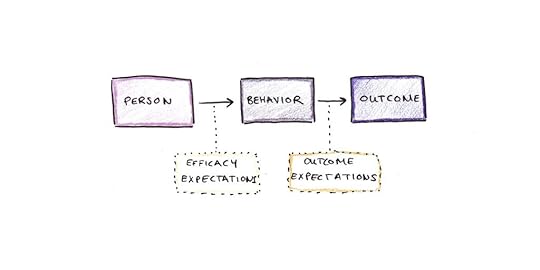 Reproduced from Social Learning Theory by Albert Bandura
Reproduced from Social Learning Theory by Albert BanduraBandura posited four contributors to self-efficacy, two weak and two strong:
Bodily arousal (weak). Being agitated can undermine our confidence.Persuasion (weak). Being cheered on or told we can do it can modestly increase our self-efficacy.Vicarious experience (strong). Watching someone else succeed can convince us we can as well.Personal performance (strong). Succeeding at something is the most compelling evidence that we can perform the actions we need to.5. The 2 Sigma Problem: The Search for Methods of Group Instruction as Effective as One-to-One Tutoring by Benjamin BloomIn this famous paper, Benjamin Bloom claims that students with one-on-one tutoring can perform two standard deviations better than an appropriate baseline.
This suggests that substantial learning gains are possible.
However, it’s impractical because the education system can hardly afford one teacher per student. Bloom’s challenge was to see if any pedagogical techniques could approach the gains seen with tutoring but could apply to a classroom with dozens of students.
Bloom believed he had found an answer in mastery learning. In this approach, students are given many interim tests. Those who fail to master the material are given new explanations, practice and an opportunity to try again. The idea is that catching difficulties early will prevent them from becoming ongoing problems.
While most meta-analyses of mastery learning put the effect size closer to 0.5 standard deviations, a far cry from the two sigma Bloom sought, this is still a relatively strong effect.
6. Blind Variation and Selective Retentions in Creative Thought as in Other Knowledge Processes by Donald CampbellDrawing on an analogy to biological evolution, Campbell argues that randomness is an overlooked variable in learning and creative thinking.
He argues that all knowledge generation proceeds by:
A trial-and-error process to induce some knowledge about the world. As with evolution, we try things out and retain what works.Using previously-acquired knowledge instead of guessing. Once you uncover valid knowledge using the first process, you can apply it without the need for random guessing.Even applying previously-acquired knowledge, there is variation and randomness generating further possibilities.This suggests that much of what we associate with inventive creativity is simply (a) acquiring the relevant set of knowledge associated with the field and then (b) trying out lots of things and keeping what works.
7. Antagonism Between Achievement and Enjoyment in ATI Studies by Richard ClarkAptitude-treatment interactions (ATI) are when the same learning technique elicits different effects in students with different prior abilities.
A common finding in ATI studies is that low-ability students learn much better with highly-structured approaches, whereas higher-ability students benefit from less-structured environments. One explanation seems to be that if you lack the necessary knowledge and skills, guidance ensures you learn the material correctly. Still, if you already have them, then challenging, open-ended environments give you needed practice applying what you know.
It would seem reasonable to expect students to opt for the method of learning that works best for them. Low-ability students would recognize their difficulties and seek structure; high-ability students would try more challenging assignments.
Except when Clark reviewed the ATI literature, he found the opposite. Students tend to prefer the method that works less well for them, often unaware that it hinders their achievement. One explanation is that learning is effortful, and we enjoy learning methods that seem to save us effort.
8. Long-Term Working Memory by Anders Ericsson and Walter KintschFew concepts are as central to the science of learning as working memory. Our mental bandwidth is limited, and we can only keep in mind a few things at a time.
Given that we can only hold a few things in memory at once, how do we perform complex tasks?
One theory is chunking. Through experience, we learn to recognize whole patterns of information as a single unit, allowing us to keep more in our heads at once. Remembering a random seven-digit number is hard, but we easily recall our phone number.
Ericsson and Kintsch review evidence that suggests chunking is insufficient to explain expert performance. For example, experts seem strangely impervious to interruptions. When reading a story rife with distractor sentences, comprehension of the story itself remains largely intact. This starkly contrasts with typical memory experiments, where distractors can completely wipe out memory for a task.
Ericsson and Kintsch argue that as we gain skill in an activity, we get better at using our long-term memories as a form of working memory, effectively expanding our capacity for familiar tasks.
9. Does Learning to Read Improve Intelligence by Stuart Ritchie, Timothy Bates and Robert PlominKeith Stanovich was among the first to propose that reading ability could bootstrap intelligence. The logic of the hypothesis is compelling:
Much of the world’s knowledge is available only through reading.Reading ability tends to be self-reinforcing, as good readers get more practice than poor ones.By reading more, people can learn more things and thus become smarter.The study by Ritchie et al. explores this hypothesis further by examining how early reading ability impacts later intelligence. They studied identical twins to control for genetic differences in intelligence. The researchers found that twins with higher reading ability showed greater improvements in intelligence over time compared to their sibling.
10. Eliciting Self-Explanations Improves Understanding by Michelene Chi, Nicholas de Leeuw, Mei-Hung Chiu, and Christian LaVancherI’ve long been a fan of what I call the Feynman Technique: take a complicated concept or procedure, and explain it as if you were teaching it to someone else.
Thus, it was interesting to come across formal research on self-explanations! In this experiment, the researchers encouraged students to explain what they were learning. They found that engaging in explanation tended to increase students’ understanding of the material.
My preferred explanation for this effect is attention. When reading an explanation, you generally don’t have much motivation to test whether or not you understand it. In contrast, when generating an explanation, you get clear feedback about what you know and what you don’t. This feedback returns your attention to the source material or problem to work out what is missing, resulting in a richer understanding than if you had stuck to the reading alone.
The post Ten of My Favorite Papers on the Science of Learning and Thinking appeared first on Scott H Young.
April 3, 2023
Reader Request: How Should I Use ChatGPT to Learn Better?
A lot of readers have asked me about how ChatGPT, and other large language models, might shape how we learn things.
For those unaware, ChatGPT is an impressive AI application that can dialog fluently about nearly any subject. It has the ability to write code, pass the US Medical Licensing Exam, translate in dozens of languages, summarize text and even write funny limericks. It also sometimes makes stuff up. Incredibly, it does all this largely through being trained to predict the next word of text.
Much of the discussion surrounding ChatGPT has reflected the hope and anxieties about how it might change society. Will it end an era of stagnant technological productivity growth? Will office jobs become obsolete? Will the robots kill us all?
I’m hardly qualified to write on most of these topics. But given that much of this blog is centered around the art of learning, I’m curious how tools like ChatGPT might change how people acquire new skills and subjects.

Since I know about as much as anyone else about this (i.e., not much), instead of pontificating, I thought I’d ask for people to share innovative ways they’ve been using (or seen someone use) ChatGPT to learn new topics (not just cheat on their homework).
Feel free to share your ChatGPT studying tips, and perhaps in a future essay I can post some links to the approaches that look most promising!
The post Reader Request: How Should I Use ChatGPT to Learn Better? appeared first on Scott H Young.



